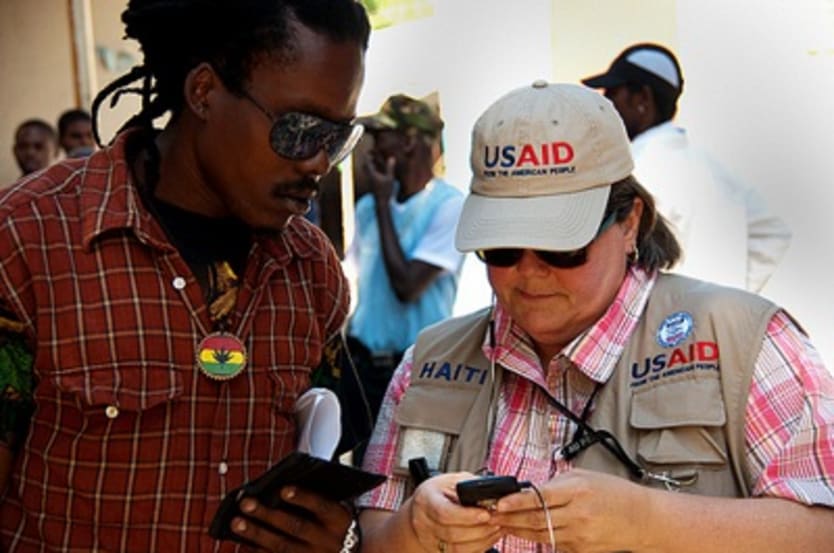
It’s hard to believe, but the iPad was launched just one year ago. It has now sold more than 15 million units and has created an entirely new way people access information and interact, as well as a new market for selling all kinds of content and applications. What’s more impressive is that the iPad is not alone: it’s just one technological advancement which is emblematic of broader innovation that is racing forward around the world, including in the field of global development.
Today, a community health worker in India can test a drop of blood using a cell phone-sized instrument from Nanobiosym in order to diagnose HIV; a patient in Nigeria can purchase medication knowing it’s not counterfeit by texting its serial number to a service called Sproxil; and in Mexico, the Opportunidades program founded just 14 years ago now provides cash to one quarter of the national population – but only in exchange for regular school attendance, health clinic check-ups, and nutritional support.
These policy and business innovations – often driven by technology – are improving lives around the world, but foreign aid institutions such as the World Bank and the U.S. Agency for International Development have found it challenging to integrate innovation in their programs. In the pharmaceutical industry, the big institutional corporations overcome their own obstacles to innovation by seeding an ecosystem of biotech firms who do cutting edge research and then sell what they develop to big pharma. In foreign aid, no equivalent ecosystem exists: donor agencies fund projects but have not yet created a seamless incentive system for entrepreneurs to develop innovations which, once proved, can then be scaled-up to impact millions of lives around the world.
What’s stopping a marketplace for innovation from forming in the foreign aid industry? For one thing, foreign aid itself does not function enough like a real marketplace. There is little true competition among foreign aid donors, so the best ideas have no arena in which to win out. But aid agencies have achieved successes by committing themselves to a specific mission and then measuring their results. That’s what they must do now in this new era of innovation: donor agencies must pledge to make innovation and transformative change a central objective of their operations.
For too long, foreign aid agencies have funded projects with specific aims: increase immunization rates in a particular community or reduce illiteracy rates in another. They have focused on projects but eschewed platforms. And they have set aside little if any funds to support entrepreneurial social ventures and innovative applications of technology.
Much of this is due to the nature of foreign aid: it’s government money and must live within contracting and procurement rules as well as policy restrictions from government authorities. So to create an innovation-centric approach to foreign aid – which embraces risk and accepts failures – will require real reforms that won’t be easy.
Already at USAID, the new Administrator, Dr. Rajiv Shah, has shown what can be done. USAID’s new Development Innovation Ventures program has awarded modest grants (about $100,000 in most cases) to promising new innovations, such as using mobile phones to fight election fraud in Afghanistan. This ought to be just the tip of the iceberg: USAID and other foreign aid donors should incentivize and reward innovations in all their programs and should free up the contractors and NGOs they fund to trial new approaches on a larger scale.
Imagine the aid worker of just a few years from now. She should be armed with a handheld broadband-connected computer – perhaps the iPad 5 – that has the ability to perform a range of functions in the field that would have been impossible today, from conducting instant blood tests to processing microfinance loans to measuring election fraud to delivering curricula to a rural school. Are foreign aid agencies ready? Today, they are not, and that’s why it’s so important that we build a culture of innovation in the global development community. It’s for this reason that Devex has launched the Development Innovators Initiative which is celebrating 40 innovative international development organizations selected from a survey of aid workers and international development professionals. We at Devex believe that we too should play our small part in building a global development culture that values and celebrates innovation as a key ingredient for making the world a better place.
Re-published with permissionby GOOD magazine, a media partner of the Devex Innovators Forum on April 21, 2011. Visit original article.








